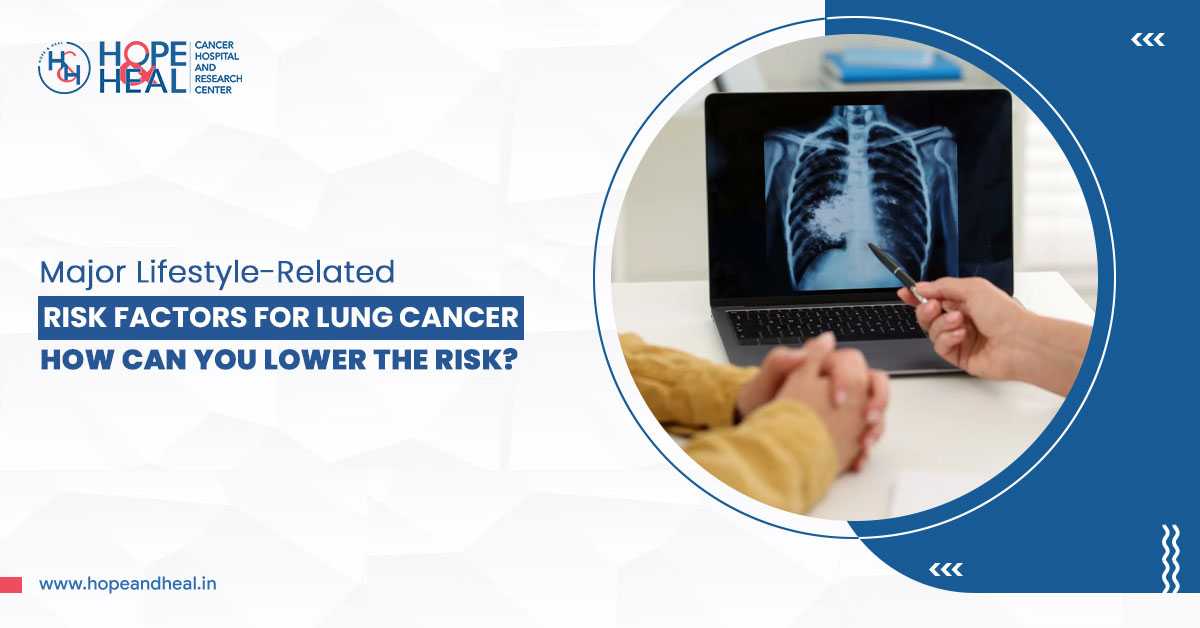Yes, there is a combination of ways to reduce cancer risk. However, these effective tips don’t guarantee prevention. When you maintain a healthy lifestyle, your diet is rich in nutrients like antioxidants, folic acid, and omega-3 fatty acids, and your current health conditions are in check, you can reduce the risk of not only cancer but also other diseases.
To get comprehensive and advanced health support for cancer, contact the best cancer hospital in Siliguri. Access to high-end healthcare by top oncologists can ensure the most promising cancer recovery and management.
Here are eight practical ways to protect yourself from cancer.
1. Avoid Tobacco in All Forms
You have already heard many times that tobacco use is one of the most significant cancer risk factors. Tobacco smoking increases the risk of many other cancers as well, including cancer of the throat, pancreas, breast, bladder, kidney, and stomach.
Chemicals in cigarettes weaken the body’s immune system; thereby, making it harder to fight cancer cells. Harmful substances in tobacco damage DNA cells in the lungs, changing how DNA cells grow, behave, and multiply.
Even secondhand smoke can affect your lungs and overall health. Chewing tobacco products can double your cancer risk as these smokeless tobacco contain tobacco-specific nitrosamines, increasing the risk of mouth, gum, tongue, and cheek cancer.
Therefore, avoiding tobacco use in all forms is one of the best steps in cancer prevention. If you are struggling to quit, consult your healthcare provider.
2. Eat a Healthy, Balanced Diet
What you eat can reduce or increase your cancer risk. If your diet contains fruits, vegetables, whole grains, and lean proteins, it may help lower your chance of cancer.
Foods such as those high in antioxidants like berries, spinach, bell peppers, citrus fruits, nuts, omega-3 fatty acids, folic acids, selenium, vitamin B12, and vitamin D may protect cells from damage.
Avoid or check your consumption of red and processed meats, ultra-processed foods, canned foods, fried foods, fast foods, foods with added sugar, beverages with added sugar, ultra-processed drinks, heavily salted foods, etc., to reduce the risk.
3. Maintain Your Healthy Weight
Did you know obesity can increase the level of inflammation in your body? Chronic inflammation is a potential risk factor for cancer. Excessive body weight is linked to several types of cancer, including breast, colorectal, kidney, uterine, pancreatic, esophagus, and liver cancers.
Maintain your body weight through diet and exercise and this can help reduce your cancer and other health risks. You can ask your healthcare provider for diet advice and a plan.
4. Avoid Sedentary Lifestyle
Exercise is not exclusive to managing body weight. Physical activity helps improve hormone levels, blood circulation, immunity, sleep, mood, energy, and digestion, all of which contribute to lowering cancer risk. Try to engage in workouts most days in a week.
With your body weight in check, you can lower the risk of several health conditions, including cancer. You don’t need to practice vigorous workouts. Moderate workouts with rest in between can keep your health in a good state.
5. Ensure UV Ray Protection
One of the most common kinds of cancer is skin cancer, and the majority of cases are brought on by prolonged exposure to ultraviolet (UV) rays from the sun or tanning beds.
To protect your skin, you should wear sunglasses and protective clothing. Plus, seek shade during the hours of maximum sun exposure and avoid indoor tanning beds. Apply sunscreen providing better coverage, but keep from sunscreen containing chemicals.
6. Limit or Omit Alcohol Consumption
While excessive alcohol consumption is a major risk factor for cancer, no one can tell about the exact safe limit. It has been linked to various cancers, including liver, breast, stomach, pancreatic, prostate, and esophageal cancers.
Ethanol broken down by the body becomes acetaldehyde, which is a carcinogen. Here this compound causes DNA damage and sometimes, irreversible DNA damage. Also, alcohol intake can disturb estrogen levels, increasing the risk of cancer.
7. Consider Fast Medical Attention
Early detection contributes to better scopes for healing. Yearly health check-ups are a must because there are diseases that don’t cause early symptoms. Your doctor may rule it out during a physical exam, lab test, or imaging test. If you notice signs like:
- Chronic cough or ongoing cough
- Coughing up blood
- Hoarseness that doesn’t heal
- Unusual bleeding
- Vaginal bleeding after menopause
- Usual discharge
- Changes in the breast skin and appearance
- Unusual bowel and bladder movements
- Significant changes in a mole or wart
- Thickening in the breast, underarms, or elsewhere
- A persistent sore
- Fatigue that persists
- Weight loss without trying
- Ongoing fever
- Unusual pain
- Ongoing bloating
- Chronic headaches
- Abnormal periods
- Bloody urine or stools
Visit your oncologist at one of the best cancer hospitals in Siliguri for all-inclusive health support.
8. Consider Cancer Screening
If your doctor orders blood tests, mammograms, colonoscopies, Pap smears, imaging tests, and skin checks, don’t delay. These tests can detect cancer in its early stages when cancer treatment is more effective.
Your doctor will tell you when to start screenings and which tests are appropriate depending on your age, symptoms, health status, family history, and other risk factors. Reach out to your doctor at the top cancer hospital in Siliguri or near you.
While you cannot prevent all cancers, adopting a healthy lifestyle reduces your risk of cancer and other diseases that can contribute to cancer. Modify your lifestyle today and consider expert advice to keep risks at bay.
Comments (0)




